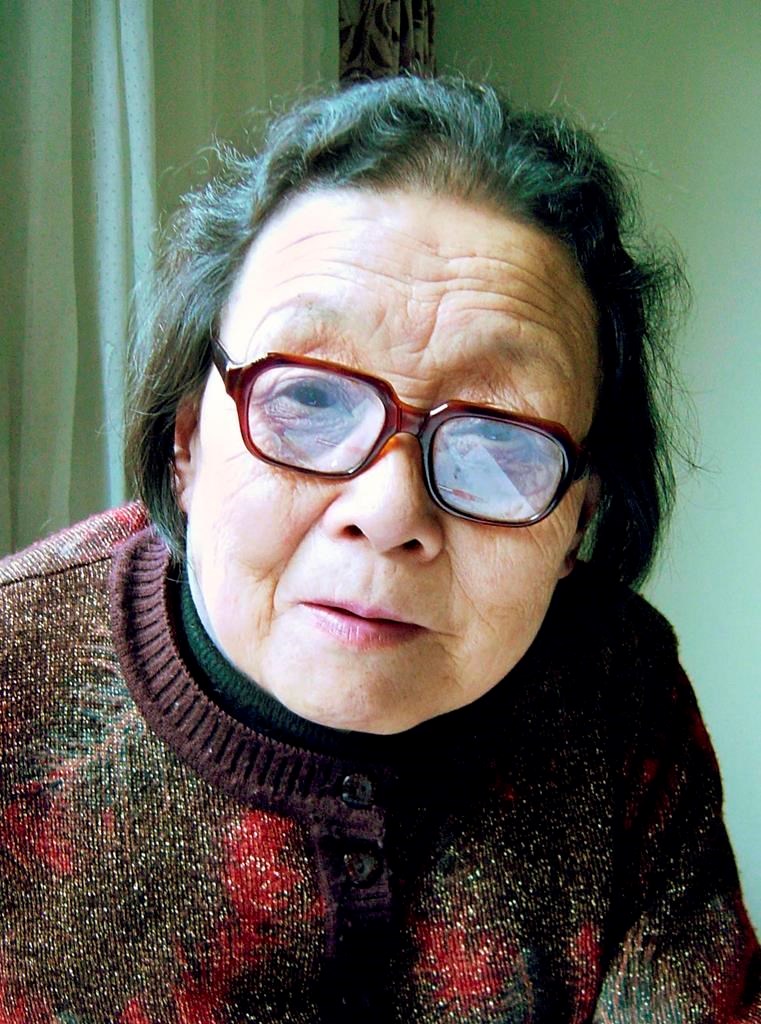Renowned Chinese doctor and activist Gao Yaojie who exposed the AIDS virus epidemic in rural China in the 1990s died Sunday at the age of 95 at her home in the United States.
Gao's outspokenness about the virus outbreak — which some gauged to have infected tens of thousands — embarrassed the Chinese government and drove her to live in self-exile for over a decade in Manhattan, New York.
Columbia University professor Andrew J. Nathan, an expert in Chinese politics who had Gao's legal power of attorney and managed some of her affairs, confirmed her death.
Gao became China’s most well-known AIDS activist after speaking out against blood-selling schemes that infected thousands with HIV, mainly in her home province of Henan in central China. Her contributions were ultimately acknowledged to a certain extent by the Chinese government, which was forced to grapple with the AIDS crisis well into the 2000s.
Gao’s work received recognition from international organizations and officials. She moved to the U.S. in 2009, where she began holding talks and writing books about her experiences.
She told the Associated Press in a previous interview that she withstood government pressure and persisted in her work because “everyone has the responsibility to help their own people. As a doctor, that’s my job. So it’s worth it.”
She said she expected Chinese officials to “face the reality and deal with the real issues — not cover it up.”
A roving gynecologist who used to spend days on the road treating patients in remote villages, Gao met her first HIV patient in 1996 — a woman who had been infected from a transfusion during an operation. Local blood bank operators would often use dirty needles, and after extracting valuable plasma from farmers, would pool the leftover blood for future transfusions — a disastrous method almost guaranteed to spread viruses such as HIV.
At the time, Gao investigated the crisis by traveling to people’s homes. She would sometimes encounter devastating situations where parents were dying from AIDS and children were being left behind. Some estimates put the number of HIV infections from that period at tens of thousands, though no national survey was undertaken as the government was trying to conceal the crisis.
Gao delivered food, clothes and medicine to ailing villagers. She spoke out about the AIDS epidemic, capturing the attention of local media and angering local governments, which often backed the reckless blood banks. Officials repeatedly tried to prevent her from traveling abroad, where she was being celebrated for her work.
In 2001, the government refused to issue her a passport to go to the U.S. to accept an award from a United Nations group. In 2007, Henan officials kept her under house arrest for about 20 days to prevent her from traveling to Beijing to get a U.S. visa to receive another award. They were eventually overruled by the central government, which allowed her to leave China. Once in Washington, D.C., Gao thanked then-President Hu Jintao for allowing her to travel.
Gao was born on Dec. 19, 1927, in the eastern Shandong province. She grew up during a tumultuous time in China’s history, which included a Japanese invasion and a civil war that brought the Communist Party to power under Mao Zedong.
Her family moved to Henan, where she studied medicine at a local university. During the Cultural Revolution, a turbulent decade beginning in 1966, she endured beatings from Maoist “red guards” due to her family’s previous “landlord” status. She remained critical of Mao into her later years.
After news of her death circulated on Monday, Chinese social media was flooded with messages of condolences, while some criticized her move to the U.S. and her stance against the Chinese government.
“We can say Dr Gao Yaojie has dedicated everything to AIDS patients,” wrote a commenter on the social media platform Weibo, “and people with a conscience will always remember her.”
—
Mistreanu reported from Taipei, Taiwan. Associated Press researcher Wanqing Chen and writer Ken Moritsugu in Beijing contributed to this report.
Simina Mistreanu, The Associated Press



